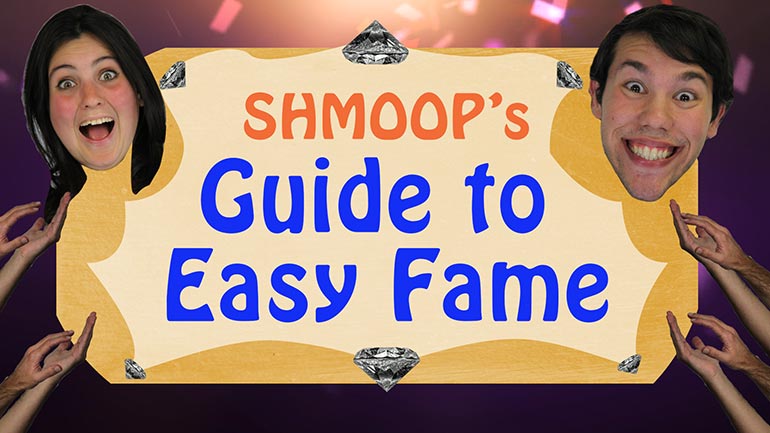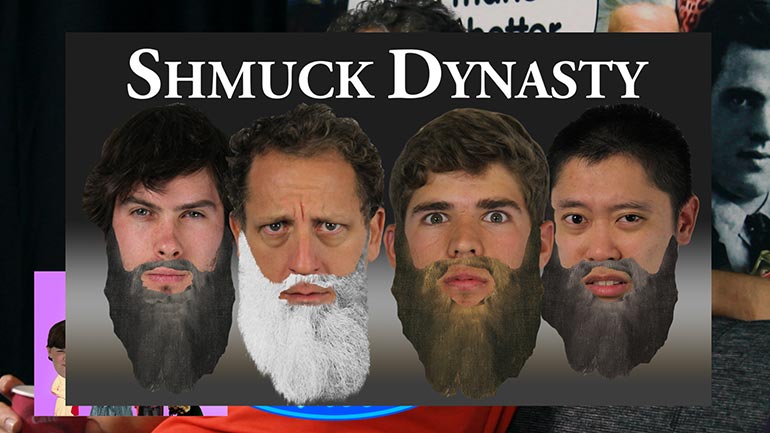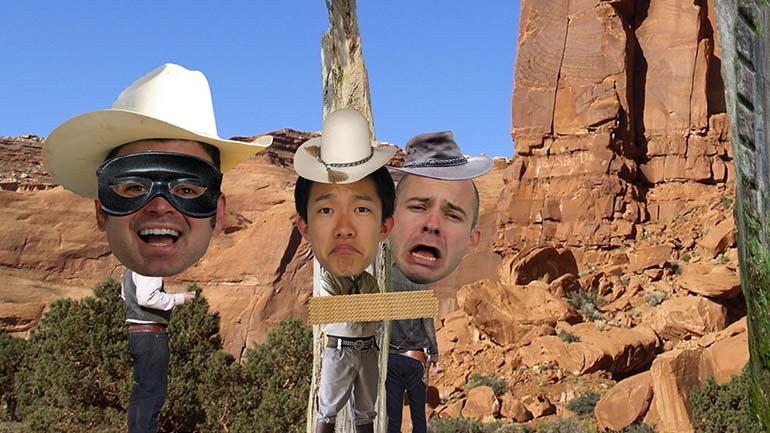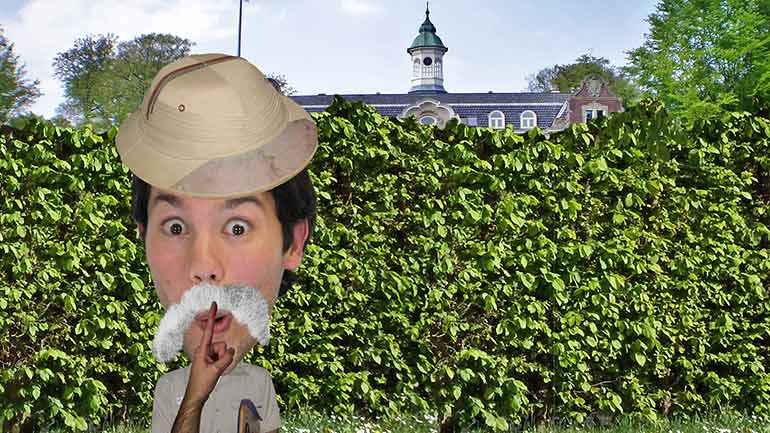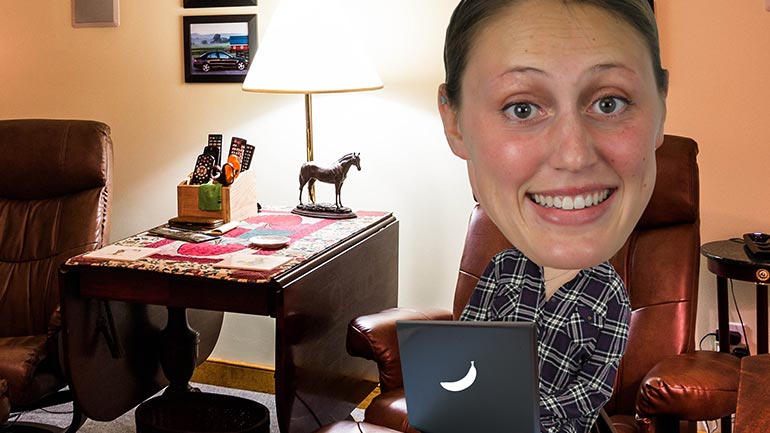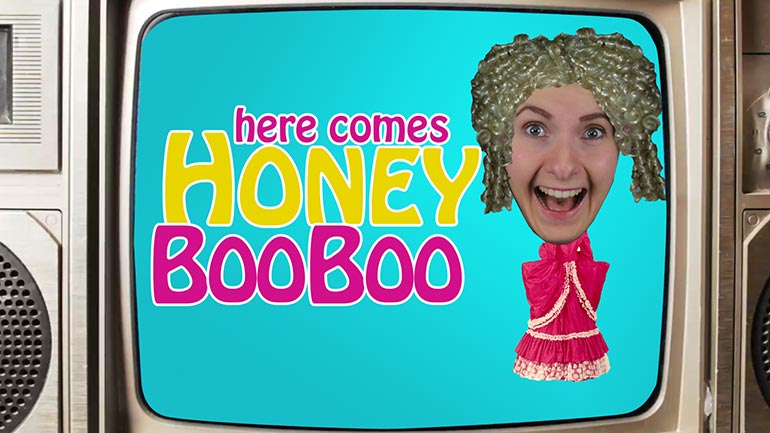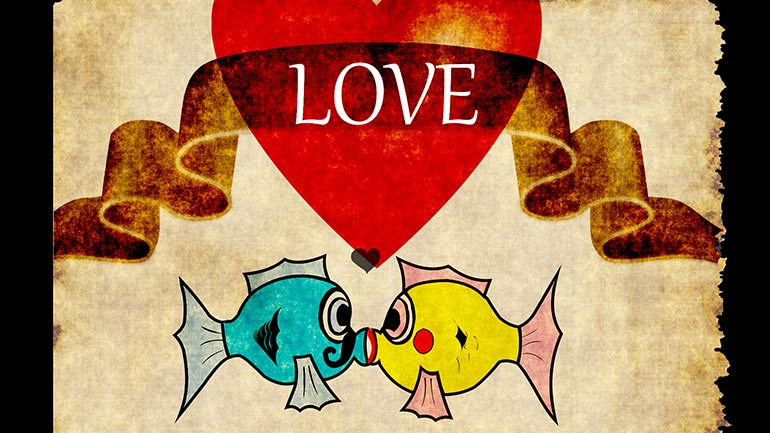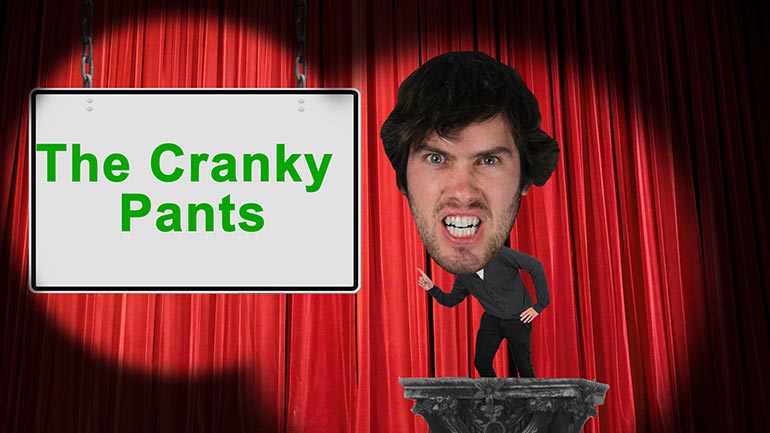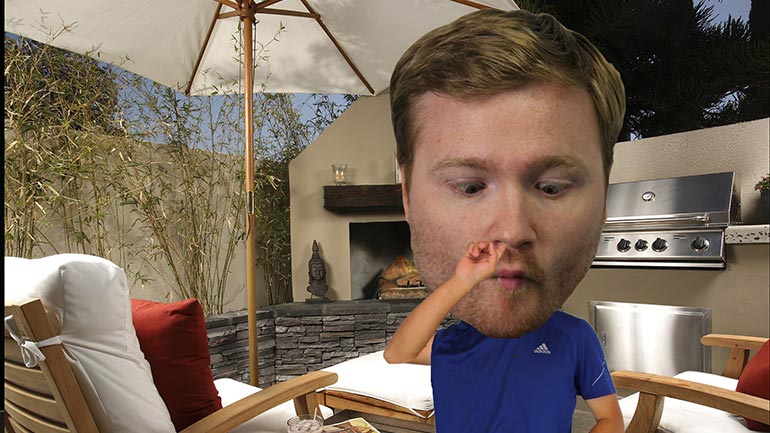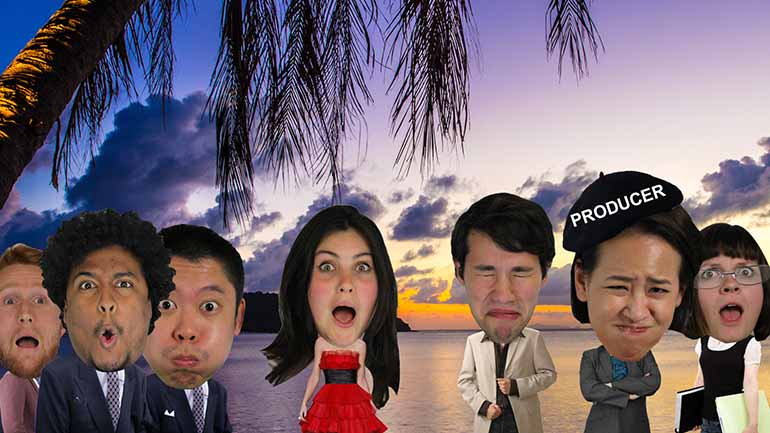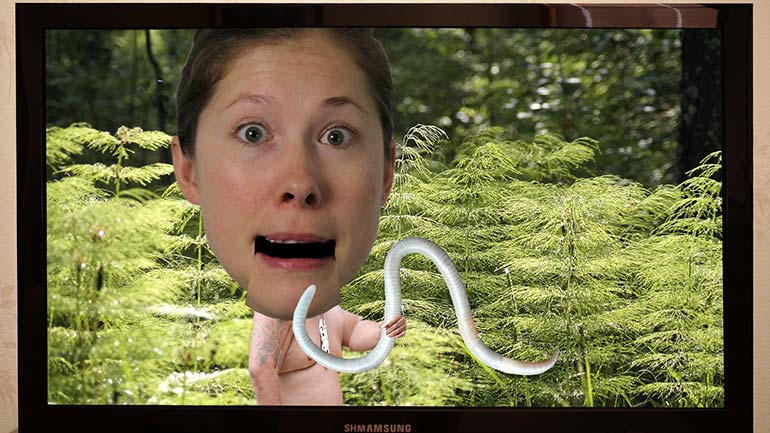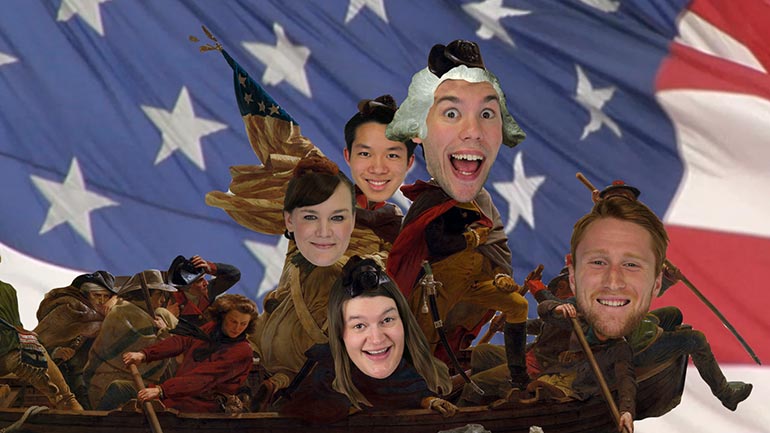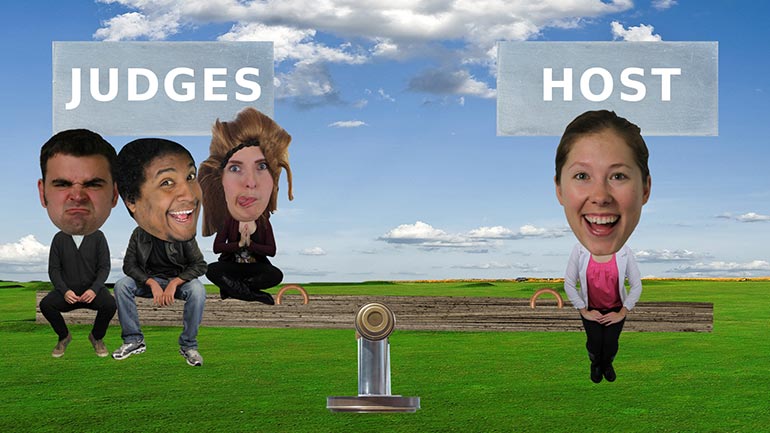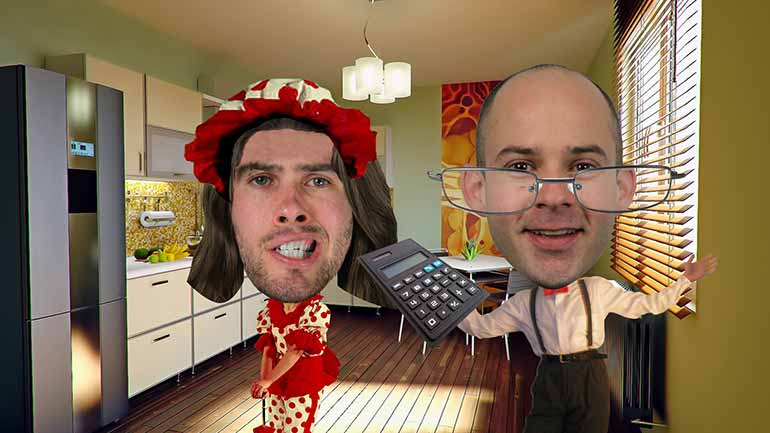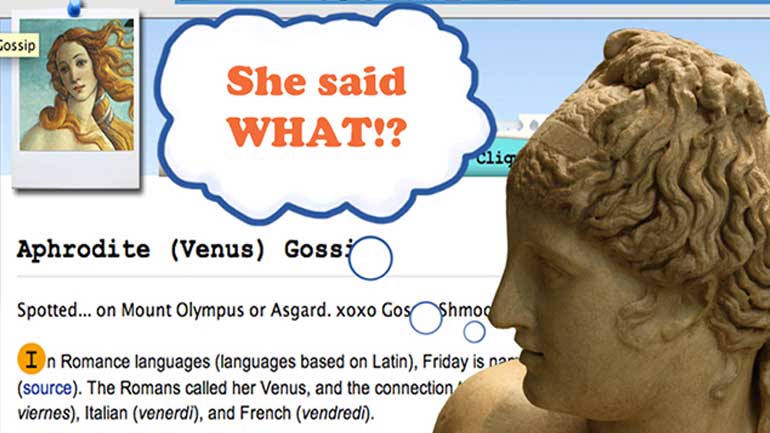ShmoopTube
Where Monty Python meets your 10th grade teacher.
Search Thousands of Shmoop Videos
Introduction to Reality TV 571 Views
Share It!
Transcript
- 00:01
We speak student!
- 00:05
[ yodeling ]
- 00:07
Reality TV Part One
- 00:09
Introduction to Reality TV
- 00:13
So we're talking about reality television in this course.
Full Transcript
- 00:16
And we have with us Deb Tennen,
- 00:17
who actually runs our creative department here at Shmoop.
- 00:20
And she is a PHD in literature,
- 00:22
a published author in People magazine,
- 00:25
and also is a regular subscriber to --
- 00:29
- Where are you a subscriber to? - Entertainment Weekly.
- 00:31
Entertainment Weekly. That probably qualifies her best
- 00:34
to discourse on this topic.
- 00:36
The challenge is that reality television has taken over our lives in a lot of ways.
- 00:40
It accounts for about a third of the television programming on today,
- 00:44
and it's growing very fast.
- 00:46
So we're gonna talk about reality television from a few different perspectives
- 00:49
and have Deb sort of enlighten us
- 00:51
from the way that she sees things
- 00:53
from reality television as literature.
- 00:57
[ dog barks ]
- 00:57
What are the origins of reality television?
- 01:01
Reality TV can be dated as far back as Candid Camera.
- 01:05
Candid Camera
- 01:07
with Allen Funt
- 01:09
starring you, the people.
- 01:12
Welcome to the Candid Camera program,
- 01:14
which brings you secretly made movies
- 01:15
of all kinds of people in all kinds of situations.
- 01:18
Which was in 1948,
- 01:20
which most people know because there's been a lot of
- 01:22
reboots of it.
- 01:23
Hidden cameras, watching people do silly things.
- 01:26
And that's considered reality TV
- 01:28
because it's non-celebrities being put in unscripted situations.
- 01:32
But reality TV as we think of it today
- 01:34
really started more with The Real World.
- 01:36
In the 90s, put people in a house and see what happens.
- 01:39
Have them do stupid stuff
- 01:41
and hear what they have to say about it.
- 01:43
And the irony that it was called The Real World...
- 01:45
When reality TV started, it actually was pretty real.
- 01:48
Even the first few seasons of Survivor,
- 01:49
which started in 2000,
- 01:51
were pretty much unscripted.
- 01:53
Today you'd be hard-pressed to find
- 01:55
any reality show that is not, in some way at least, constructed.
- 01:58
[ bird caws ]
- 01:59
Does reality TV have a script?
- 02:02
Well, there's not a script in the way that you would think of a script for a sitcom.
- 02:06
They do have producers and writers
- 02:08
feeding them at least conversation topics
- 02:10
if not actual lines to say.
- 02:13
They put them in specific situations
- 02:15
and they give them conversation topics
- 02:17
knowing exactly where that's gonna lead.
- 02:19
So then, what's the casting process like?
- 02:21
It seems like all these people are lunatics
- 02:23
or trying to become stars, I guess. Does that ever work?
- 02:27
Absolutely it does work.
- 02:28
People become stars from reality TV all the time.
- 02:31
Elizabeth Hasselbeck, I think her name is,
- 02:34
who hosted The View
- 02:34
started as a contestant on Survivor.
- 02:36
There are tons of people on these food cooking shows
- 02:40
that become celebrity chefs because of it.
- 02:42
The casting process has changed a lot
- 02:43
since the beginning of reality TV,
- 02:45
since the early Survivor/Real World days.
- 02:47
It used to be that you would do a video interview
- 02:49
and show how kooky and weird you were
- 02:51
and then they'd say,
- 02:52
"Oh, this is an interesting personality.
- 02:53
Let's get them in the house."
- 02:54
Now most casting is actually producers going out
- 02:58
and finding failed actors and actresses
- 03:00
in Southern California and saying,
- 03:02
"You're hot. You're hot.
- 03:03
You can string a sentence together.
- 03:07
Let's put you, like you said, on an island
- 03:09
and see what happens."
- 03:10
I think the most recent season of Survivor
- 03:13
only had one auditioned person
- 03:17
cast on the show.
- 03:18
Everyone else was recruited from
- 03:20
producers just going around finding them.
- 03:22
So if you're a producer,
- 03:24
you're looking for someone with
- 03:26
an emotionally volatile personality.
- 03:28
Maybe someone who's kind of an alcoholic?
- 03:30
- Like, what are you even looking... - Yeah. [ laughs ]
- 03:32
Well, there are definitely archetypes, right,
- 03:34
that you wanna hit.
- 03:35
So, yes, you want the person who's emotionally volatile
- 03:37
because that's gonna make everyone else freak out
- 03:39
and what you're looking for is the most drama possible.
- 03:41
You also want someone who's really dumb,
- 03:43
because part of the excitement of watching reality TV
- 03:47
is feeling superior to everyone who's on there.
- 03:49
So if you feel more competent than them, that's good.
- 03:51
You want someone who's incredibly smart,
- 03:53
someone who's incredibly hot.
- 03:55
But that every single person watching
- 03:56
can relate to one type of person
- 03:58
and hate one type of person.
- 04:01
So you bring up two interesting perspectives here.
- 04:03
One is that of the contestant.
- 04:06
What kind of low self esteem
- 04:08
they must have to wanna actually be on
- 04:09
one of these shows.
- 04:11
And the other is the audience
- 04:13
needing to feel superior
- 04:15
- to someone who's kind of loserly to start with. -Right.
- 04:18
Yeah, the contestants - the ones that we're talking about
- 04:20
that get recruited - are people who just want exposure.
- 04:23
These are the people who -- You watch The Bachelor,
- 04:25
these are the people who go on
- 04:27
even though they're in a relationship or whatever.
- 04:28
They just wanna get their music career going.
- 04:30
And they just wanna cause as much drama as possible
- 04:32
so that people remember their name and their face.
- 04:34
From the other side of it...
- 04:37
- From the audience perspective. - Yeah, we, I mean...
- 04:39
It's the same reason that you sit at the counter at Starbucks
- 04:42
and watch people go by
- 04:43
and think about how ugly her purse looks
- 04:45
and how that person could lose a few pounds and all that.
- 04:48
It's kind of that same thing of, you know,
- 04:50
the way we all do.
- 04:51
We judge people because it makes us feel better about ourselves.
- 04:53
And some people voice it and some people don't.
- 04:54
So that makes a lot of sense.
- 04:56
Has society become more compressive?
- 04:58
So that needing to feel superior
- 05:01
has become a bigger deal to us
- 05:03
as a mass?
- 05:04
I think as we grow as a society
- 05:07
that is more materialistic and more superficial,
- 05:09
of course we're gonna wanna think
- 05:10
that we're more beautiful and more intelligent than everyone else around us.
Related Videos
The gods and heroes battle it out with monsters in the best of mythology.
Today we aren't looking for the most virtuous person, or most likeable, but rather the most disturbing. Will it be Echo, the nymph who is doomed to...
This dude decapitated a creature with snakes for hair and married a beautiful maiden that he saved from a sea monster. Let's see how many of you ca...
Would you like to be immortal? We expected as much. But how about ifyou were ugly and your mother tossed you out of your home, giving you a limp fo...
